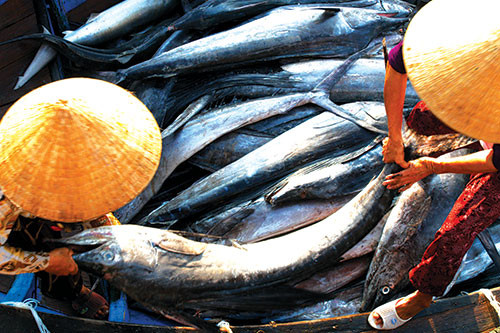
Over the past few months, export activities have suffered the impact of Covid-19 pandemic, leading to decline of export orders from key markets such as: China, Japan, South Korea.... Obstacles in trade and exportsof marine products have directly affected living of labour forces and fishermen households. The European Union-Vietnam Free Trade Agreement (EVFTA), which came into effect on August 1, has created possitive signs for Vietnam’s seafood exports, and since then, seafood volume exported to EU markets has raised dramatically. Thanks to EVFTA, Vietnam is expected to enjoy EU’s tariff incentives for exports of goods, especially seafood products. Being a key export product of Vietnam to European markets, seafood will enjoy preferential advantages, with the commitment of cut-off up to 90% of the tariff lines of marine products in the longest schedule of 7 years. Vietnam’s seafood products will be more attractive than those from other countries, such as: India, Thailand, which have not signed free trade agreements with EU.
Over the past year, seafood exports of Binh Thuan have developed rapidly to make significant contributions to the whole country’s export revenues. In period 2016-2019, the province’s export turnover posted an average growth rate of 8.75% per year. Currently, the locality is focusing on some advantageous products, such as: garment, dried and frozen seafood, agricultural products (dragon fruit, cashew nut, vegetable…), footwear, wooden furniture, automobile parts, high-quality paper… In which, seafood have been considered as a main export product. On September 11, the first frozen shrimp lot of Vietnam exported by Thong Thuan Co., Ltd (Vinh Hao-Tuy Phong-Binh Thuan) was approved to be exported to EU with zero percent export duty. Before joining EVFTA, tax rates of frozen shrimp exported to EU markets valued at 12-20%. Currently, the frozen shrimp lots shipped to EU under EVFTA treaty have been certified ASC standards. One month after EVFTA took effect, Vietnamese exporters have seen increases in orders from EU.
Enterprises exporting seafood exported to EU markets must invest in advanced technologies to modernize production lines and diversify products. In the coming time, Vietnam will boost efforts in removing EU’s “yellow card” warning for illegal, unreported and unregulated fishing and take advantage of tax incentive brought by EVFTA to grow seafood export to EU.
Agriculrural and rural development sector in Binh Thuan has deployed a series of policies to encourage enterprises to join production chains to boost trade promotion activities and expand export markets.
Translated by Phuong Lan (Source: Binh Thuan Newspaper)




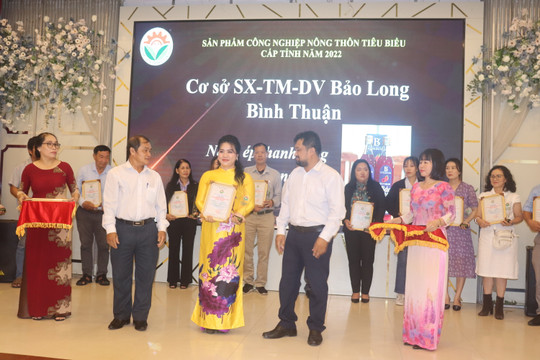
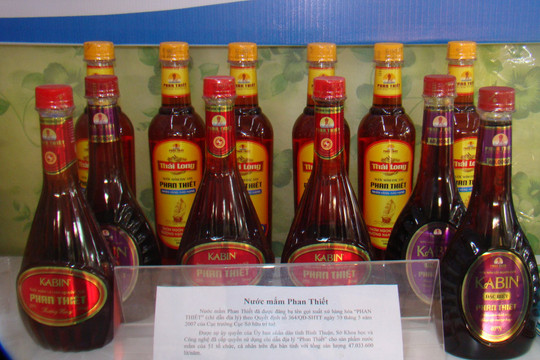
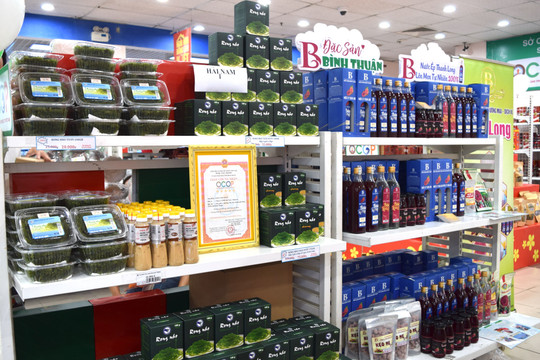






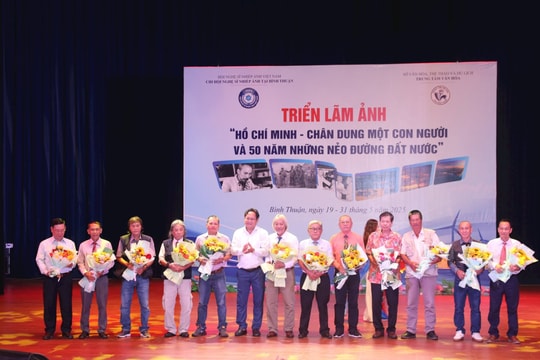






.jpg)


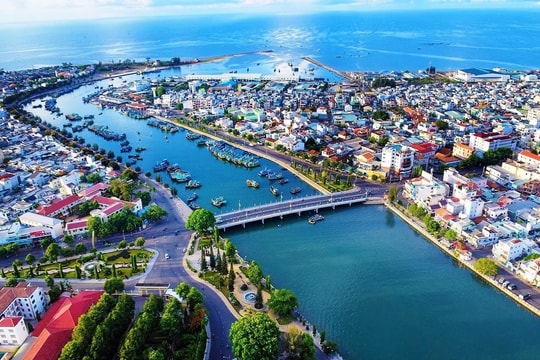


.jpeg)

.jpeg)


.jpeg)


